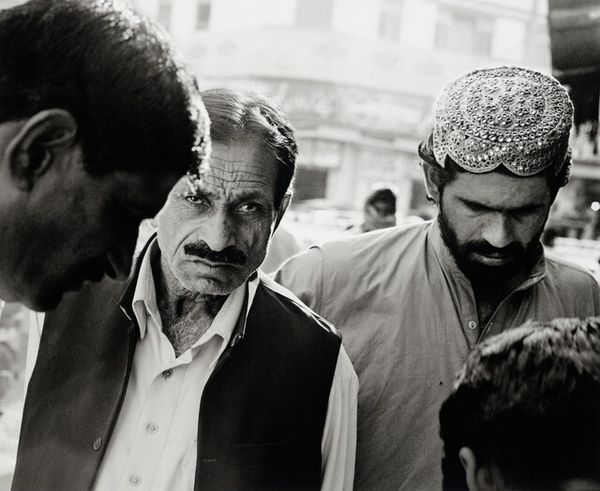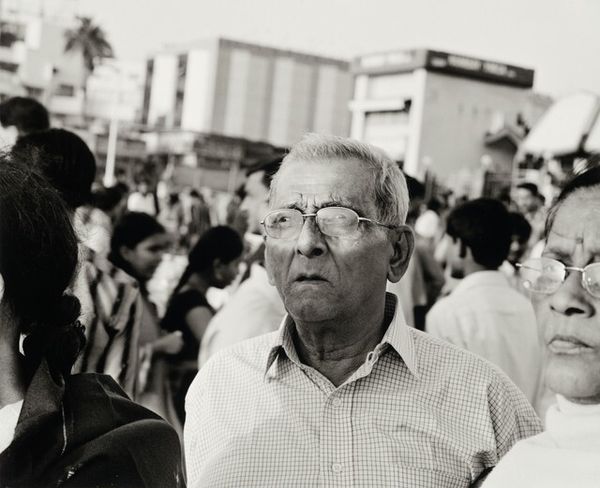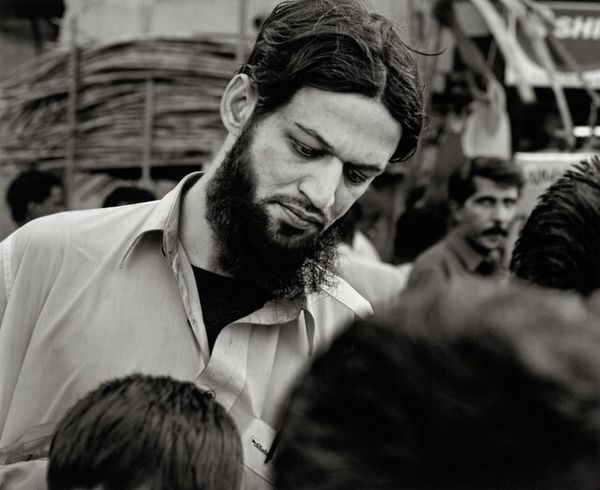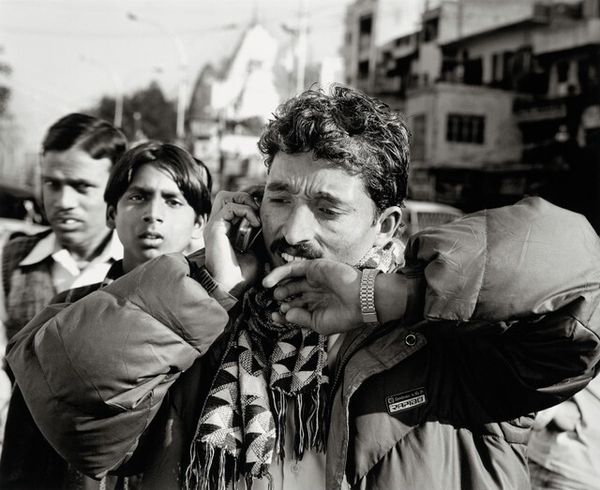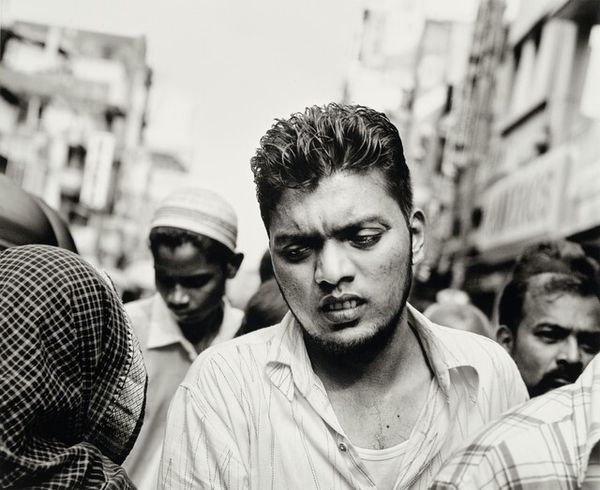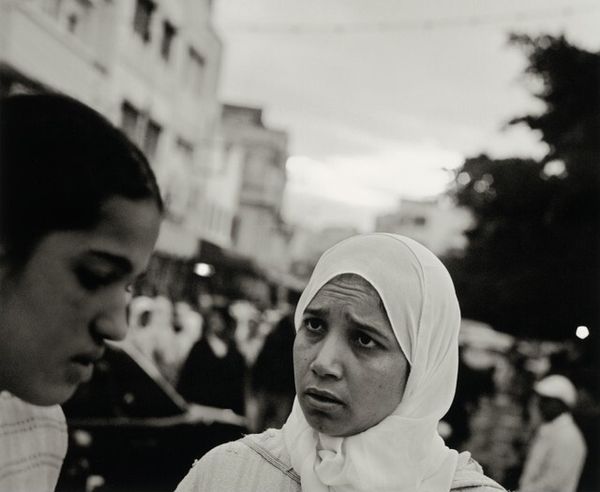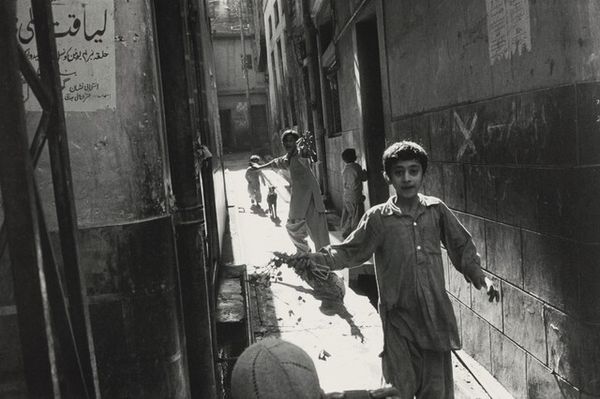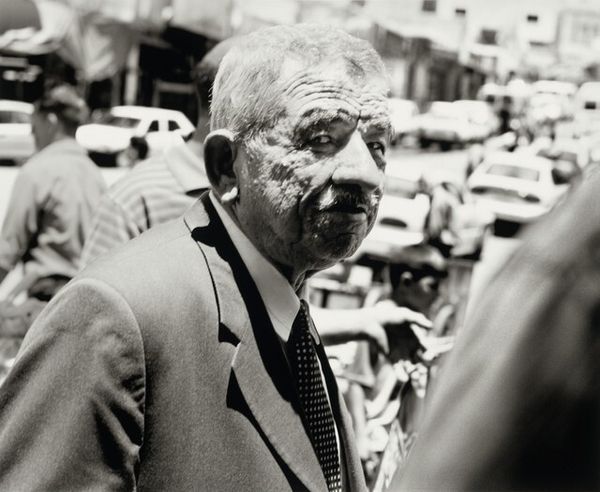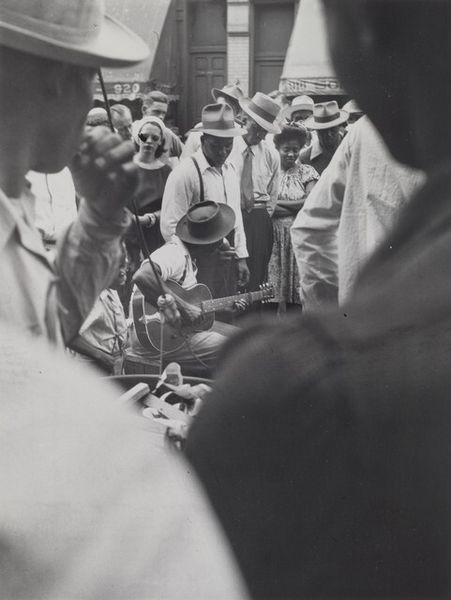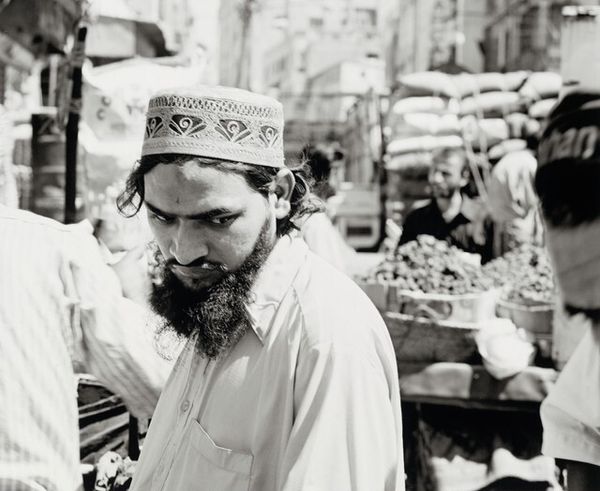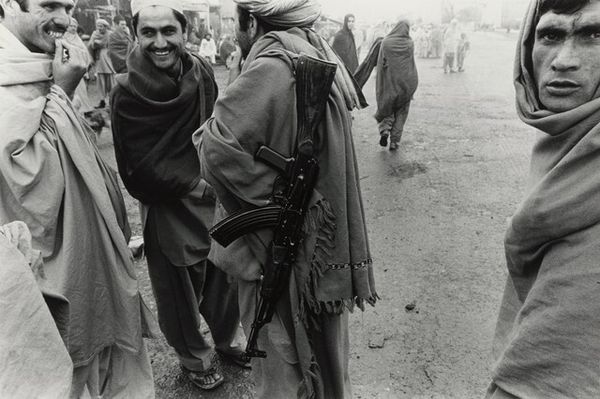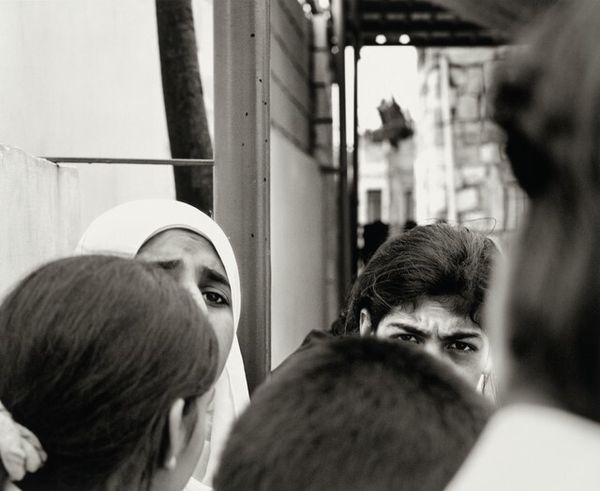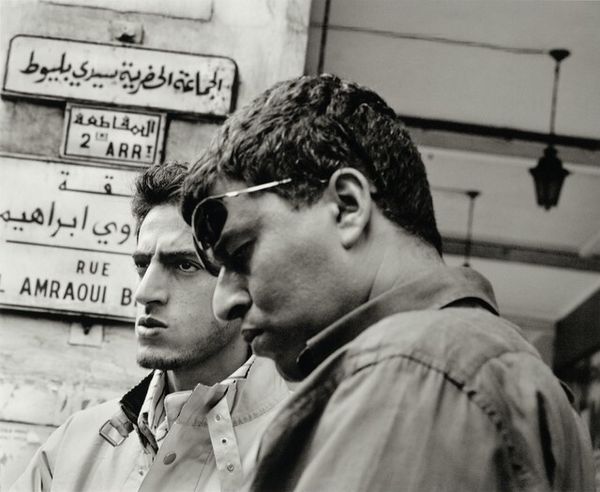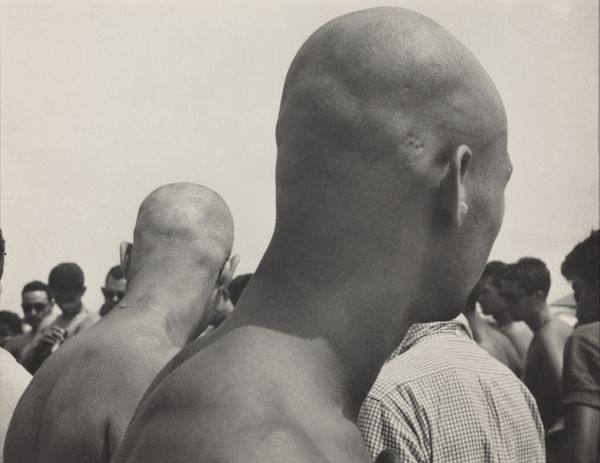
#
wedding photograph
#
black and white photography
#
photo restoration
#
wedding photography
#
black and white format
#
historical photography
#
black and white theme
#
black and white
#
monochrome photography
#
photographic element
Dimensions: image: 40.64 × 49.53 cm (16 × 19 1/2 in.) sheet: 58.42 × 67.31 cm (23 × 26 1/2 in.)
Copyright: National Gallery of Art: CC0 1.0
Editor: We're looking at "Karachi, 2008, near Empress Market," a black and white photograph by Leo Rubinfien. The close framing creates a real sense of intimacy, but also a kind of tension, maybe even unease, focusing on the gaze of one man amidst a crowd. What strikes you most about this image? Curator: It's the eyes, isn’t it? That penetrating stare. In the context of Karachi, Empress Market – a place teeming with commerce and everyday life - the gaze becomes a symbol. Think of it as a visual metaphor. What do you think he's seeing? Or, perhaps more importantly, what does he *represent* seeing? Editor: I initially read it as suspicion, or maybe directness... but now that you mention it, his gaze could symbolize something more profound...maybe a critical observation of society? Curator: Precisely. Consider the power dynamics inherent in observation, particularly in post-colonial contexts. The black and white medium strips away superficiality, leaving us with the raw human experience. Does the photograph offer commentary on societal visibility and power, or perhaps, the burden of awareness? Editor: So, it's less about what *he* is specifically thinking and more about what his presence *represents* in the bigger picture of Karachi society and its history. The visual language here conveys the collective anxieties of that time. Curator: Exactly! Each element, even the out-of-focus figures in the background, plays a role in constructing this symbolic narrative. How do *we* as viewers, fit into the power dynamic constructed through the lens of this image? Editor: This makes me see the image completely differently now. It’s not just a street portrait, it’s a lens into the deeper cultural psyche. Curator: And it’s in photographs like this that reveal cultural memory and offer continuity with our world. We are not passive viewers, but part of the conversation this image invites.
Comments
No comments
Be the first to comment and join the conversation on the ultimate creative platform.
